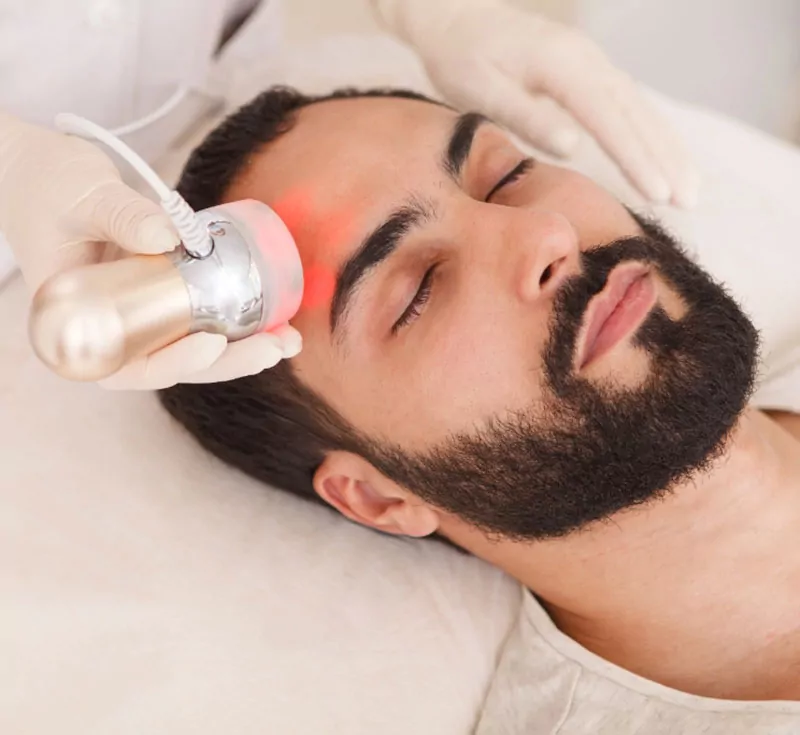Explore effective dark circle treatment options and causes such as genetics and aging. While dark circles are generally harmless, they are not the most attractive things to have on the face. They can make an individual appear older and tired than they are, robbing them of the vibrancy of their eyes.
Fortunately, the dark circle treatment clinic offers various cosmetic treatments that can be administered to address this issue and restore an individual’s youthful appearance. In this article, we will review the causes, correct diagnosis, and different treatments for dark circles.
Causes of dark circles
Dark circles can be caused by different factors, including:
Genetics: some people are prone to getting dark circles because of their genetics. This means the condition runs in the family and is passed down to family members through the genes. Individuals whose families have a history of under-eye pigmentation are more likely to experience dark circles.
Fatigue and lack of sleep cause dilation of the blood vessels, leading to puffiness and darkening under the eyes. Fatigue can also make the skin look pale and make the dark circles more noticeable.
Age: with age, the skin loses elasticity and decreases collagen production, which thins the skin and increases the visibility of the blood vessels and underlying structures, hence increasing the prominence of dark circles.
Sun exposure: prolonged exposure to the sun leads to more melanin production, causing hyperpigmentation and darkening of the skin around the eyes.
Diagnosis of dark circles
Dr. Rasesh Shah, who is a qualified and experienced specialist at ShSmi Esthetic Center in Vadodara, India, can examine, assess, and find the root cause of the appearance of dark circles in order to recommend the best treatment. A proper diagnostic procedure may include:
Medical history: The healthcare provider will ask a series of questions about your health and medical history to determine the contributing factors to your dark circles. This may also include the family history of dark circles, allergies, and other medical conditions.
Physical examination: Physical examination involves the assessment of the skin around your eyes to determine the puffiness, skin texture, and severity of the dark circles.
Lifestyle assessment: The doctor will inquire about your lifestyle habits and routines. This includes an assessment of sleep pattern and stress level, sun exposure, and diet to determine the factors contributing to the appearance of dark circles.
Allergy testing is also part of the diagnostic procedure. Some dark circles may be caused by allergies, and that is what the specialist intends to find out with allergy testing.
Blood tests: In some cases, blood tests may also be scheduled to find out if there are any underlying health conditions contributing to dark circles.
Dark circle treatments
The specialist will recommend different dark circle treatments depending on various factors, mainly the underlying cause. Some common treatment options are:
Topical creams include creams formulated with ingredients such as retinol, vitamin C, and peptides, which help to reduce pigmentation and improve the skin’s texture and tone.
Cold compresses: A cold compress is probably often the first line of treatment as it is almost always readily available. Applying a cold compressor can temporarily reduce the puffiness around the eyes and reduce dark circles.
Chemical peels: chemical peel solutions help in the exfoliation of the skin to get rid of the old skin cells and promote new ones, improve the texture and tone of the skin, and reduce the appearance of dark circles caused by hyperpigmentation.
Dermal fillers: if the dark circles are a result of skin thinning, adding volume and plumping up the area with dermal fillers can improve their appearance.
By understanding the causes and receiving a proper diagnosis, individuals can choose the most suitable treatment to effectively reduce dark circles and regain a refreshed appearance. Consult with Dr. Rasesh Shah for personalized recommendations and expert care.

